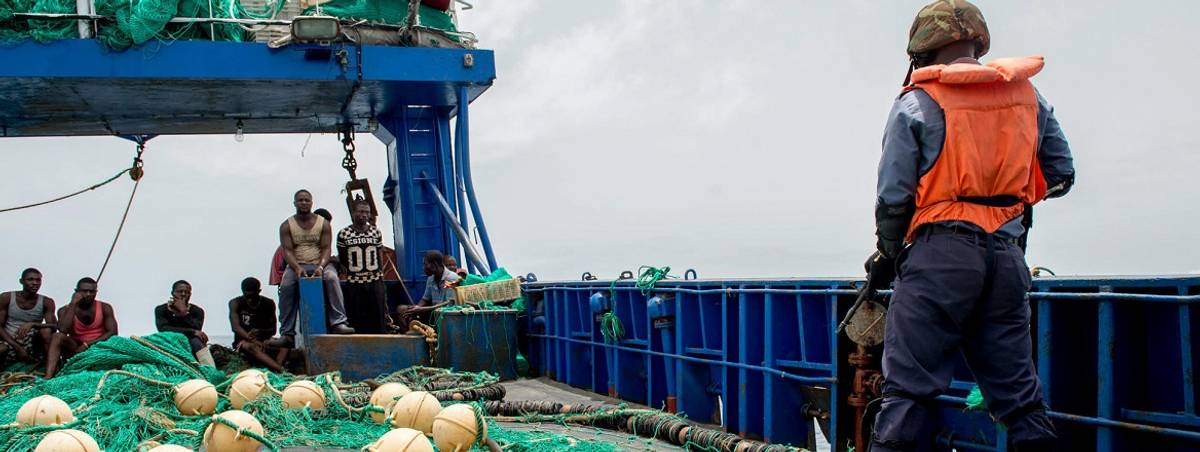Below the Surface: How Illegal Fishing Threatens Our Security
The first project of its kind to examine in detail the intersection between illegal, unreported and unregulated fishing and transnational organised crime and security.
Illegal, unreported and unregulated (IUU) fishing is conventionally treated by governments worldwide as part of technical regulatory infringements. This approach is flawed: RUSI’s research demonstrates that much of today’s IUU fishing activity takes place on an organised, systematic scale across multiple jurisdictions.
Our project argues that large-scale IUU fishing must be recognised as transnational organised crime and as a threat that endangers food security and livelihoods, undermines the rule of law and deprives states of revenue.
Yet research on such security dimensions remains limited and fragmented and our understanding of their dynamics remains partial. Policy and practical responses, meanwhile, remain ill-suited, failing to keep pace with the complexity of the threat posed.
This project sought to address these knowledge gaps around the intersection between IUU fishing and security, with findings published in the landmark paper ‘Below the Surface: How Illegal, Unreported and Unregulated Fishing Threatens Our Security’.
Aims and objectives
IUU fishing is deemed a trivial issue in many states insofar as it relates to national security. It is often dismissed as harmless regulatory transgression that occurs on a small scale out of ignorance or opportunism. Yet much IUU fishing takes place worldwide on a systematic and industrial scale, as a form of transnational organised crime.
Such high-volume IUU fishing is carried out by repeat offenders engaged in coordinated efforts to break fisheries laws and, as such, has tangible security impacts.
This project reviewed the diverse strands of available evidence on the form, dynamics and extent of the security threat posed by high-volume IUU fishing. In doing so, it assessed the scope and reliability of current knowledge; identified gaps in this picture, both thematic and geographical; and assessed the appropriateness of current responses. It stressed the need for all states to characterise high-volume IUU fishing as serious crime and to recognise its susceptibility to crime convergence. It argued that a paradigm shift is needed in the way we view and respond to such organised forms of IUU fishing.
Supported by
The Pew Charitable Trusts
The research was supported by the Pew Charitable Trusts.
Project outputs
Read the report and watch the launch paper event.

Project impact
The Below the Surface report was quoted in a Blue Paper Summary for Decision-makers produced by the High Level Panel for a Sustainable Ocean Economy. The results of the project were presented on the ‘Following the Money – Finance and IUU Fishing’ panel at the 11th International Forum on IUU Fishing at Chatham House in 2018. The project’s research on corruption and IUU fishing contributed to Interpol’s Guide for Law Enforcement Practitioners in the fisheries sector.
The report is cited in academic journals including Trends in Organized Crime, Frontiers in Marine Science, Nature Food and the International Journal of Maritime Crime and Security, among others.






